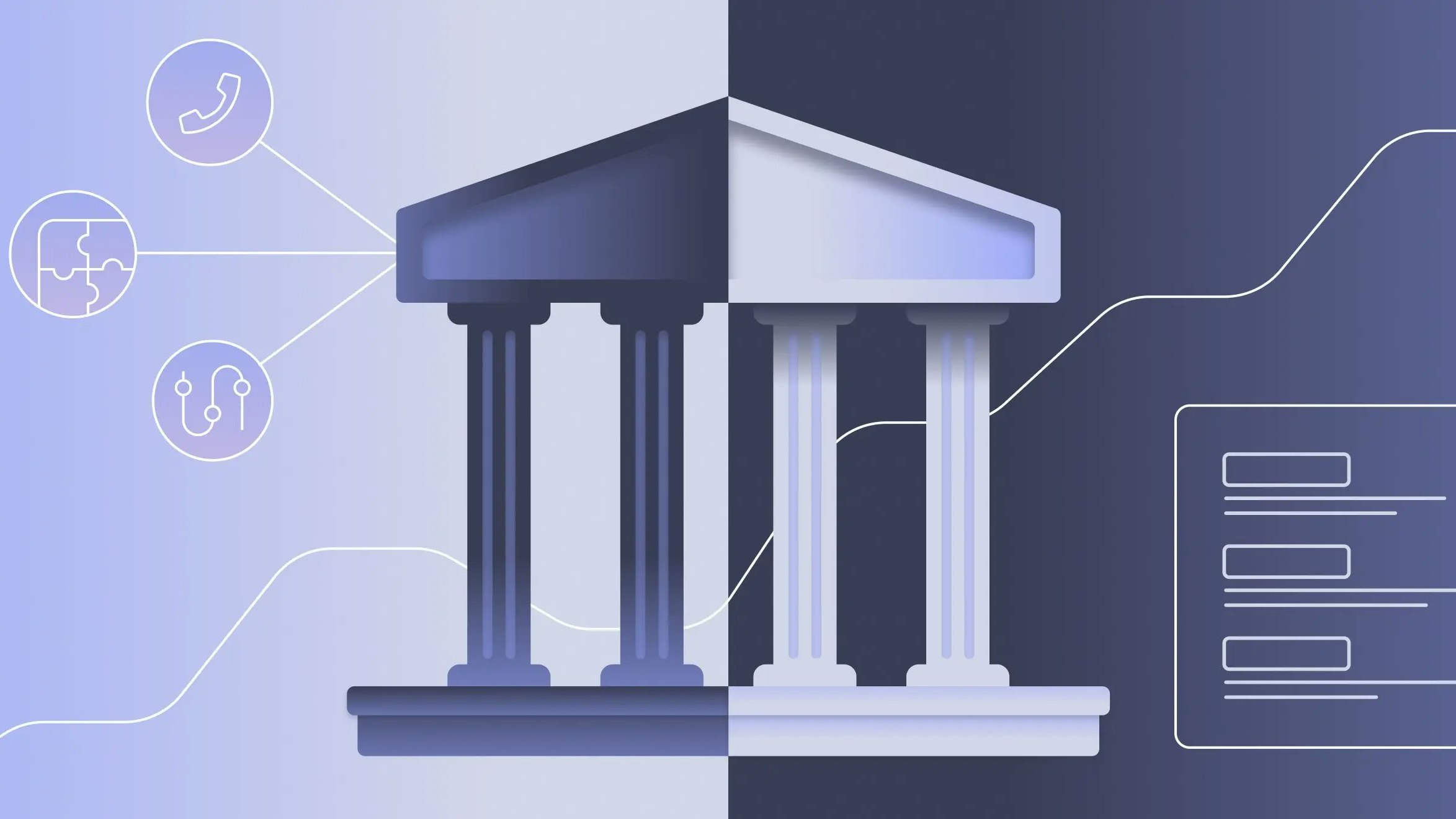Common misconceptions about filing 1099s

Deanna Shen is a Sr. Product Marketing Manager at Mercury.
For specific guidance on your tax filing obligations, please consult with a qualified tax professional. Mercury does not provide tax advice. Tax regulations can be complex and vary based on individual circumstances, so it's important to seek personalized advice from an expert who can assess your unique situation.
1099s show up everywhere during tax season, and yet few topics cause more confusion among founders and small business owners. You’ve probably heard conflicting answers about who gets a 1099, when you’re required to issue one, or what happens if you file late.
It’s easy to see why: IRS guidance is dense, the rules shift slightly year to year, and online advice often contradicts itself.
This article clears up common 1099 misconceptions so you can avoid costly mistakes, protect your business, and file with confidence
If you’re just getting started, you can also read our guide on how to prepare for 1099 filing for step-by-step instructions and deadlines.
Misconception #1: Only “full-time” contractors get a 1099
One of the most common 1099 misconceptions is that only “regular” or “full-time” contractors qualify. In reality, 1099s are based on who you paid and how much — not how often they worked.
If your business paid an independent contractor, freelancer, or self-employed individual $600 or more during the year — even for a single project — you’ll likely need to file Form 1099-NEC. The “NEC” stands for non-employee compensation
That said, there are a few important caveats to pay attention to:
- You generally don't need to file a 1099 for vendors structured as C-corps or S-corps, with important exceptions including: payments to attorneys (regardless of entity structure), medical and health care payments, and substitute payments in lieu of dividends. When in doubt, collect a W-9 to confirm entity type.
- Payments to sole proprietors, partnerships, or single-member LLCs typically require a 1099.
- The $600 threshold applies per payee, not per invoice or per project. Track total payments per vendor throughout the year — three $250 payments still trigger the 1099 requirement.
If you’re unsure about a contractor’s entity type, ask them to fill out a Form W-9 before payment. This helps ensure you have their correct taxpayer identification number (TIN) and business classification before tax season rolls around.
Misconception #2: Employees can receive 1099s instead of W2s
This is one of the riskiest 1099 filing mistakes founders can make.
Employees never receive a 1099. They must receive a W-2, which reports wages, withholdings, and benefits such as Social Security and health insurance contributions. Employers are responsible for withholding and remitting those taxes.
Independent contractors, on the other hand, handle their own self-employment taxes, benefits and retirement plans, etc. That’s why they receive a 1099 showing gross income with no withholdings or deductions included.
There are real consequences for misclassifying an employee as a contractor. It can lead to:
- IRS penalties and back taxes
- Unpaid employment taxes and retroactive benefits
- Legal disputes with misclassified workers
- Reputational damage if word spreads that your business cuts corners
To stay compliant, review worker relationships regularly. If you control how, when, and where someone works — and provide tools, training, or ongoing supervision — they’re probably an employee. When in doubt, consult a tax or employment professional.
Misconception #3: You don’t need a 1099 if you paid via PayPal or Venmo
PayPal or Venmo payments are another source of confusion. Many assume that if a freelancer or contractor was paid through these providers, they don’t need to file a 1099. But this depends on how the payment was processed.
Here’s the rule:
- If you paid via PayPal or Venmo for business goods/services using their commercial payment features, the platform issues the 1099-K.
The tricky part is that many businesses use both methods in the same year. That means you might still need to issue a 1099 for direct payments, even if other transactions were processed through PayPal or Stripe.
To simplify your year-end work, keep a record of how each payment was made, not just how much. This helps you avoid duplicate filings or missed reports.
Misconception #4: Filing late isn’t a big deal
A late 1099 might not seem urgent, but the IRS takes filing deadlines seriously.
For 1099-NECs, the deadline to file and furnish copies to contractors is typically January 31 (February 2 for 2026 due to weekend). Missing that date can result in escalating penalties according to the IRS 1099 rules:
Filing delay for 2025 | Penalty per form |
Up to 30 days late | $60 |
31 days late through August 1 | $130 |
After August 1 or not filed | $330 |
Intentional disregard | $660 |
The maximum penalty is different for small businesses and large businesses, and the IRS charges interest on penalties. These fines can add up quickly, especially for startups with multiple contractors.
Beyond penalties, late or missing filings can also:
- Trigger IRS audits
- Delay your contractors’ tax filings
- Erode trust with your vendors and partners
To stay ahead, set calendar reminders in December and use accounting tools that help organize and sort transactions likely to need a 1099. Mercury streamlines this process with its 1099 filing tools. You can request and store W-9s, identify eligible recipients, and generate and deliver 1099 forms directly from your account. To learn more, read Mercury’s 1099 filing overview.
Misconception #5: 1099s only matter for your contractors’ taxes
Think 1099s are just paperwork for your vendors? Think again. Accurate 1099 filings benefit your business, too.
Properly filed 1099s help you:
- Maintain clean records of expenses for audits or financing
- Demonstrate transparency to investors or lenders
- Build trust with contractors by showing professionalism
- Avoid over- or under-reporting deductible business costs
Beyond that, understanding 1099 requirements for contractors helps you stay compliant and avoid common 1099 errors like missing vendors or filing the wrong form type. Knowing who gets a 1099 form each year is part of running a disciplined, audit-ready operation.
Ultimately, your 1099 process reflects how organized and compliant your business is. Treating it as a key part of your financial operations helps you operate with clarity and confidence.
Other common 1099 filing mistakes to avoid
Even founders who understand the basics can make small errors that cause big headaches. Here are a few to watch for:
- Using the wrong form: Payments to contractors go on Form 1099-NEC, while rent, royalties, and other income types still use Form 1099-MISC (or “miscellaneous”).
- Incorrect TIN or EIN: Even a single typo in a taxpayer identification number can trigger an IRS “Backup Withholding Notice” (B-notice), which is issued when the IRS finds a mismatch between a payee’s name and TIN on your 1099 filing. Always double-check contractor details against their Form W-9 before submitting.
- Missing vendors: Payments spread across multiple systems (like payroll software and your bank account) can lead to missed 1099s. Run a year-end vendor report to reconcile totals.
- Wrong address or name format: These small details can delay delivery or lead to rejected filings.
- Forgetting thresholds and deadlines: Many common 1099 errors come from overlooking the $600 payment threshold or missing the January 31 deadline for filing. Setting reminders and organizing records early can prevent these 1099 filing mistakes.
Tools like Mercury can help founders and small business owners stay compliant and keep track of these details. It’s difficult to remember every step, but if you plan ahead and keep an eye on tax season early, you’ll set yourself up for a smoother and less stressful tax season.
For a step-by-step guide on how to prepare 1099s, review this checklist.
Confidence comes from clarity and compliance
Filing 1099s doesn’t have to be confusing. Once you understand who qualifies, what forms to use, and when to file, you’ll reduce stress and avoid the pitfalls that trip up so many founders every year.
Think of it this way: getting it right the first time means protecting your business, building trust, and giving yourself one less thing to worry about when tax season rolls around.
For more resources to help you get started on your 1099 filings, check out our overview to help you get started.
About the author
Deanna Shen is the Product Marketing Lead for Mercury's New Product offerings, which include Invoicing, Taxes, and more. On her off hours you'll find her traveling, heads down in a good puzzle, and buying shiny gems and jewelry.
Related reads

The hidden costs of financial fragmentation

How to switch your personal banking provider

What to look for in business bill pay software — beyond basic payments
